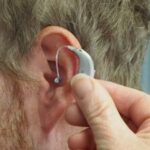A recent study published by the University of California has revealed that tattoos do not provide an accurate representation of an individual’s personality or behavior. The research, conducted over a two-year period, analyzed the perceptions of tattooed individuals and found significant discrepancies between public perception and reality.
The study, which surveyed over 2,000 participants, aimed to explore the societal biases and stereotypes associated with tattoos. Despite common assumptions that tattoos might indicate rebelliousness or nonconformity, the findings suggest that these body art forms are not reliable indicators of personality traits.
Breaking Down the Study’s Findings
According to the research team, led by Dr. Emily Carson, the study employed a mixed-methods approach, combining quantitative surveys with qualitative interviews. Participants were asked to evaluate images of people with and without tattoos and to make judgments about their personalities based on these images.
The results were telling.
“Our data shows that people often make snap judgments about tattooed individuals that do not align with reality,”
said Dr. Carson. “This highlights a significant bias in how we perceive body art and its supposed link to personality.”
Historical Context and Changing Perceptions
The perception of tattoos has evolved considerably over the decades. Historically, tattoos were often associated with sailors, prisoners, or members of subcultures. However, in recent years, tattoos have become mainstream, with a growing number of professionals and celebrities proudly displaying their ink.
Despite this shift, the study indicates that outdated stereotypes persist. According to a 2018 Pew Research Center survey, nearly 40% of millennials have at least one tattoo, yet many still face judgment in professional settings.
Expert Opinions on Tattoo Stereotypes
Experts in sociology and psychology have weighed in on the study’s implications. Dr. Laura Mitchell, a sociologist at New York University, noted that the persistence of these stereotypes is rooted in cultural narratives that are slow to change.
“Tattoos are a form of self-expression, but they are often misinterpreted through the lens of outdated cultural stereotypes,”
Dr. Mitchell explained. “As tattoos become more prevalent, it’s crucial for society to reassess these biases.”
Implications for Society and Future Research
The findings of this study have significant implications for how tattoos are perceived in various social and professional contexts. The research suggests a need for increased awareness and education to combat stereotypes and promote a more nuanced understanding of body art.
Dr. Carson and her team plan to expand their research to explore how these perceptions might vary across different cultures and demographics. “Understanding the global context of tattoo perceptions could provide deeper insights into how we can challenge and change these biases,” she stated.
Meanwhile, the study serves as a reminder of the importance of looking beyond appearances when forming opinions about individuals. As tattoos continue to gain popularity, the conversation around their societal implications is likely to evolve.
For now, the research underscores a critical message: tattoos are not a window into the soul, but rather a canvas of personal expression that should be appreciated without prejudice.
About The Author
 Senate’s GOP Spending Bill: A Closer Look at Medicaid Changes
Senate’s GOP Spending Bill: A Closer Look at Medicaid Changes Chris Whitty Warns Culture War Rhetoric on Cycling Risks Public Health
Chris Whitty Warns Culture War Rhetoric on Cycling Risks Public Health House GOP Faces Intense Pressure as Trump Pushes for Megabill Passage
House GOP Faces Intense Pressure as Trump Pushes for Megabill Passage AI Sparks Unprecedented Bullish Sentiment in Banking Sector
AI Sparks Unprecedented Bullish Sentiment in Banking Sector Revolutionary Gene Therapy Offers Hope for Restoring Hearing
Revolutionary Gene Therapy Offers Hope for Restoring Hearing